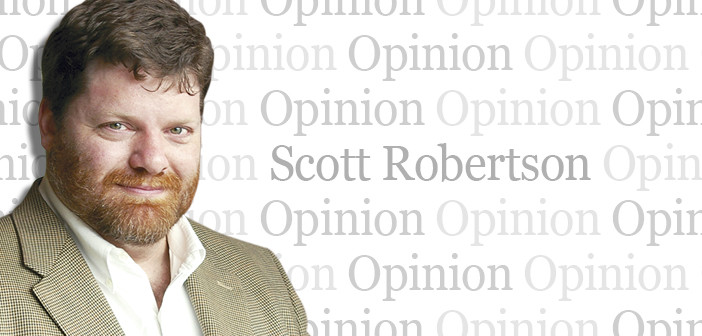By Scott Robertson
“Ensure your holiday party is not a Christmas party in disguise.”
-The University of
Tennessee Office for Diversity and Inclusion’s Best Practices for Inclusive Holiday Celebrations in the Workplace
My alma mater is at it again. The University of Tennessee at Knoxville (UTK) is in the headlines for making statements the majority of Tennessee taxpayers find ridiculous, if not outright offensive.
You may remember back around Labor Day when the UTK Office for Diversity and Inclusion (ODI) released its Guidelines for Gender-Neutral Pronouns. We let that go without comment. Now, however, the same office is going after Christmas, and we just can’t abide that.
Last week, the ODI published a set of “Guidelines for Inclusive Holiday Celebrations in the Workplace.” While the online document stated in the first sentence the university has no official policy on religious or cultural décor or celebrations in the workplace, it subsequently encouraged faculty and staff to implement its recommendations as “best practices.”
The first “best practice” said, “Holiday parties and celebrations should celebrate and build upon workplace relationships and team morale with no emphasis on religion or culture. Ensure your holiday party is not a Christmas party in disguise.”
Even were I not a Christian, I think this would offend me. No matter what you believe, you’d be hard pressed to find anyone who believes the holiday season is about celebrating “workplace relationships” and “team morale.”
The hypocrisy here is thick. First, Christianity is singled out. Were the ODI primarily concerned with protecting the sensitive sensibilities of all, it would have at least said, “Ensure your holiday party is not a Christmas, Hanukkah or Kwanzaa party in disguise.” Nope, it’s just those sneaky Christians we have to watch out for.
Second, the office said, “Décor selection should be general, not specific to any religion or culture.” Well then, it’s not holiday décor, is it? If we’re not celebrating something specific, why are you even bothering to set guidelines for how we should celebrate it? It’s ironic that the guidelines from an office of inclusion are all about what should be excluded.
Next, the ODI said, “Refreshment selection should be general, not specific to any religion or culture.” Okay, if it weren’t getting ridiculous before, that pushed it over the edge. The Office for Diversity and Inclusion is excluding food because it might offend someone.
Food.
The ODI then circles back and says, “Most importantly, celebrate your religious and cultural holidays in ways that are respectful and inclusive of our students, your colleagues, and our university.”
So let me get this straight. Were I a faculty or staff member at UTK, I would be encouraged by the ODI to, “celebrate my religious holidays… with no emphasis on religion.”
This is the kind of intellectual dishonesty I find abhorrent anywhere, but especially at an institution of higher learning. If the ODI wants to say it’s advocating for atheists and practitioners of non-Christian religions on campus, then just say so.
But it lacks that level of honesty. The ODI puts Christmas between Hanukkah and Kwanzaa on a “Cultural and Religious Holidays Calendar” as if all holidays were equal, then singles out the Christian holiday as something that needs to be specifically not celebrated, at least in public.
Why do I have the distinct feeling that a celebration of Chinese New Year, just to pick another cultural celebration, would be welcomed as a show of diversity by this office, whereas Christmas, also a cultural holiday, is shunned?
Here’s the one saving grace about all this for UTK. The Office of Diversity and Inclusion has about the same power to set policy for faculty and staff at the university as the chairman of the Music Department does, or the assistant trainer for the football team, or the lead janitor at North Carrick Hall.
At the end of the day, Donna Braquet, who wrote both the gender-neutral pronoun guide and the Christmas party in disguise memo, cannot set policy. She alone cannot tell faculty, staff or students how to behave. Unless backed by action from administrators far above her pay grade, her opinions have no more weight than yours or mine. She just has a platform from which to speak.
Back in 2014, the University of Tennessee Board of Trustees released a “Diversity Statement,” which I happen to support. It says, in part, “Interacting with people from diverse backgrounds and perspectives augments the curricular experience and affords every student the opportunity to gain the knowledge and skills necessary to be a productive and contributing citizen of this state and nation, capable of competing in a global society…The Board expects the University to engage in a variety of initiatives to advance diversity in all aspects of University life.”
I can’t argue with a word of that. If my children are to engage in business with colleagues and competitors from cultures around the world, it makes no sense to shelter them from starting to understand those individuals and their cultures at the university level.
But Ms. Braquet continues to publish statements from the ODI that show her dedication to inclusion only of those she identifies with, coupled with a desire to exclude those with whom she does not. If Braquet doesn’t understand the meaning of inclusion, perhaps it’s time she be excluded from the publishing any more “guidelines.”





